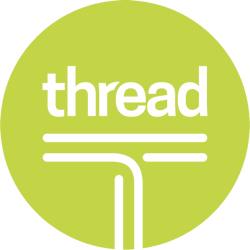Protecting Sensitive Company Data When Using AI
As AI tools like ChatGPT become a bigger part of our daily workflows, it’s essential to pause and think about how we’re using them, especially when it comes to company and employee information.
Many people don’t realize that when you're using a free version of an AI tool, the information you put into it is often stored by the company behind the tool. In some cases, that data can be used to train future models or even become accessible in ways you didn't intend. That means if someone were to input sensitive information, like employee salaries, roles, or even details about internal projects, that data could be saved outside your control.
While some paid versions of AI offer stronger privacy protections, the risk is real whenever an AI tool is used without clear policies in place.
For HR teams and business leaders, this is especially concerning because we handle some of the most confidential information in the organization. Accidentally sharing private employee data or company plans through AI could open the door to compliance violations, legal issues, or a serious breach of trust.
How AI Tools Store and Use Data
When someone uses a free version of tools like ChatGPT (or other AI models):
- Inputs are typically stored: Meaning whatever is typed in could be kept on company servers.
- Training on data: In many free models, user inputs may be used to further train and refine the model unless you specifically opt out (and sometimes you can't even opt-out).
- Potential public exposure: While it's rare for individual user data to be intentionally made public, because it's stored and used internally, a breach or improper handling could expose sensitive information.
By contrast, paid, enterprise, and API versions usually have:
- Stronger privacy commitments.
- Data opt-out: Input data is not used to retrain the models.
- Confidentiality standards that align better with business needs.
👉 Example: Some workspaces clearly states, "OpenAI doesn't use [Name of Workspace] workspace data to train models." That's a big protection.
Why It's a Risk to HR and Businesses
Here's where things get serious, especially for HR teams:
Data leaks Sensitive employee data (like salaries, grievances, or investigations) could be stored by a third party without control. An employee types, "Write a termination letter for Jane Doe who is being let go for misconduct" — that's now saved somewhere else.
Confidential IP exposure Business strategies, plans, or proprietary ideas could be leaked. Someone asks ChatGPT to help draft a confidential M&A announcement.
Compliance violations Especially under laws like GDPR, HIPAA, or CCPA, improperly handling employee or customer data can lead to fines. Sharing health information or PII (personally identifiable information) could trigger legal consequences.
Employee trust issues Employees expect HR to keep their data private. If AI usage compromises that trust, it could hurt morale and cause legal risk. An employee learns their compensation details were shared into a public AI tool.
Misuse by employees Employees using public AI for shortcuts (like writing offer letters, performance reviews) without security practices can unknowingly expose the company. A recruiter copies candidate evaluations into a free AI tool to "make the writing sound better."
Best Practices for Companies Using AI
- Train employees: Run awareness training explaining what can/can't be shared with AI tools.
- Use trusted versions: Only use paid, enterprise, or private versions that guarantee data isn't stored or used.
- Avoid inputting sensitive info: Treat AI models like public spaces — if you wouldn't post it online, don't put it into free AI tools.
- Create policies: Build a clear AI use policy, especially for HR, Legal, and Executive teams.
- Monitor compliance: Regularly review how AI is being used inside the company.
In Short
AI can be a huge asset to HR — but only with the right guardrails.
Without precautions, you could be unintentionally airing your company's laundry in public. HR holds some of the most sensitive data in an organization, and using AI without careful protocols could mean serious legal, ethical, and reputational risks.














